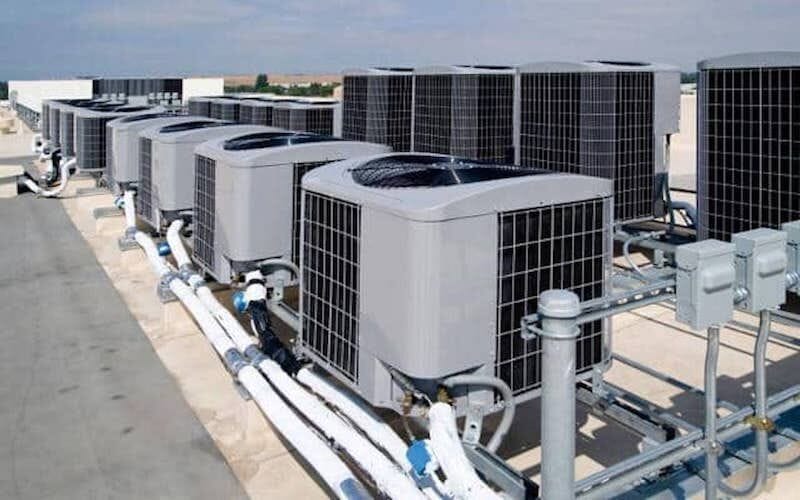As the temperatures in Arizona rise, effective heating, ventilation, and air conditioning (HVAC) systems become essential for maintaining comfort in commercial properties and it’s imperative that you prepare your HVAC systems now for Arizona’s hot weather.
With scorching summers becoming a norm, property managers must prioritize the maintenance and preparation of their HVAC systems to ensure efficiency and reliability. Here’s a comprehensive guide to prepare your HVAC systems for the intense Arizona heat.
DEEPER DIVE: Read all the Ranking Arizona Top 10 lists here
INDUSTRY INSIGHTS: Want more news like this? Get our free newsletter here
Conduct a comprehensive system inspection
Before the peak summer season hits, schedule a thorough inspection of your HVAC systems. This should include checking key components such as compressors, coils, and ductwork. A professional HVAC technician can identify potential issues such as refrigerant leaks, blocked filters, or damaged fans. Early detection allows for timely repairs, which can prevent costly breakdowns during the hottest months.

Replace or clean filters
Air filters play a crucial role in the efficiency of HVAC systems. Clogged or dirty filters can restrict airflow, placing additional strain on the system and leading to increased energy consumption. In Arizona’s dusty environment, it’s advisable to replace or clean filters monthly during the summer. For commercial properties with frequent tenant turnover or high occupancy, consider investing in high-efficiency filters (HEPA) to improve indoor air quality.
Service the cooling coils
The evaporator and condenser coils are vital for the cooling process. Dust and dirt can accumulate on these coils, reducing their efficiency and making the system work harder. During routine maintenance, ensure that the technician cleans both sets of coils. Regular cleaning can help maintain optimal performance and extend the lifespan of the HVAC system.
Check refrigerant levels
Refrigerant is essential for the cooling process, and low levels can indicate potential leaks. In Arizona, where temperatures can soar above 100 degrees, managing refrigerant levels is critical. Arrange for a technician to check the refrigerant charge and address any leaks promptly. Maintaining the correct refrigerant level ensures optimal system efficiency and comfort for tenants.
Inspect ductwork and insulation
Proper airflow is essential for effective cooling. Inspect ductwork for any leaks, blocks, or collapses that could impair airflow. Sealing any duct leaks prevents cooled air from escaping and enhances system efficiency. Additionally, ensure that insulation around ducts and in roofs is in good condition to minimize energy loss, especially in the extreme Arizona heat.
Optimize thermostat settings
Upgrading to smart thermostats can improve energy efficiency significantly. These devices can be programmed to optimize cooling patterns based on occupancy, helping to reduce energy waste when spaces are unoccupied. Encourage tenants to utilize programmable settings and maintain consistent temperatures to minimize the workload on HVAC systems.
Establish a maintenance schedule
Finally, establishing a regular maintenance schedule for your HVAC systems is crucial, particularly before significant seasonal changes. Create a checklist of essential tasks, including inspections, filter replacements, and coil cleaning. Consider developing a relationship with a reliable HVAC service provider who can assist with regular maintenance visits.
Preparing HVAC systems for Arizona’s hot weather involves a proactive approach to maintenance and efficiency. By conducting thorough inspections, replacing filters, and engaging in regular servicing, property managers can ensure their HVAC systems operate smoothly even in extreme heat.
As summer approaches, prioritizing HVAC readiness and taking steps to prepare you HVAC for hot weather is not just a necessity but an investment in your property’s future.
Author: Keith Pomonis is the president of Mesa-based EHS Restoration. For more information call (480) 306-5777 or visit ehsrestoration.com.




